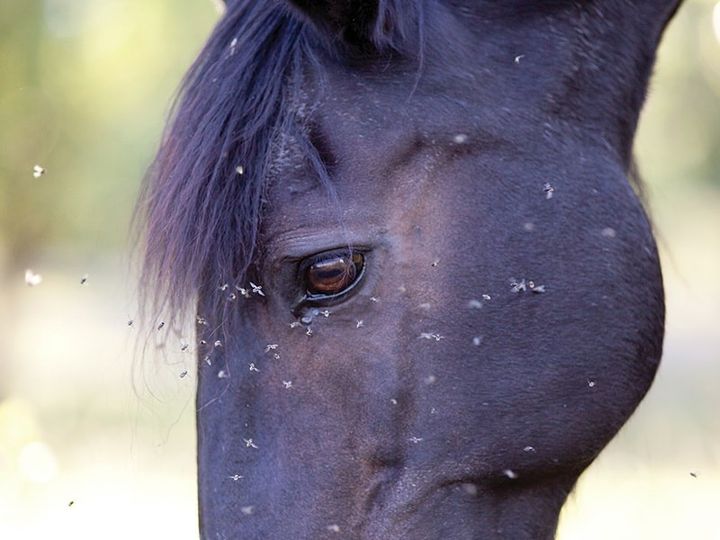Japanese encephalitis is a mosquito-borne viral disease that can cause reproductive losses in pigs and encephalitis in other susceptible animal species. Horses are a susceptible species. It is caused by Japanese encephalitis virus which is a member of the Flavivirus genus.
The virus is primarily spread by mosquitoes feeding on infected animals and does not usually spread directly from animal to animal (i.e. it is not considered contagious).
Whilst horses can become infected and occasionally show symptoms, they cannot infect mosquitoes and therefore cannot infect any other animals or humans. Horses are considered a ‘dead-end host’.
Clinical signs of Japanese encephalitis in horses
In horses many cases are asymptomatic and most clinical disease is mild, however more severe encephalitis can occur which may be fatal.
Signs include:
- Fever
- Jaundice
- Lethargy
- Anorexia and neurological signs which vary with severity of the clinical disease.
Neurological signs can include incoordination, difficulty swallowing, impaired vision, and rarely a hyperexcitable form occurs. Disease has also been reported in donkeys.
What to do if I suspect JE in my horse
Japanese encephalitis is a notifiable exotic disease in Victoria. If you suspect Japanese encephalitis in your horse, immediately contact your local vet. Alternatively, you can contact your local Agriculture Victoria staff member or phone the all-hours Emergency Animal Disease Watch Hotline on 1800 675 888.
For more information, head to the Victorian Agricultural website at:

